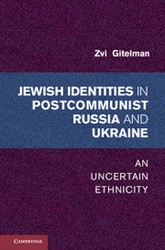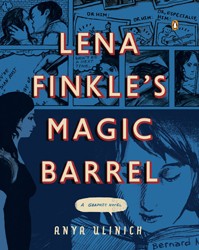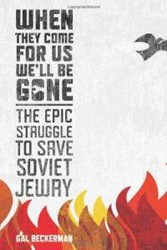Sam Sokol, a major Israeli journalist, has written an indispensable book on the response of Ukraine’s Jewish community to Russia’s invasion of eastern Ukraine. Sokol tells his story through primary and secondary sources, often citing interviews and testimony of individuals involved on all sides of the issue. One of his main arguments is that Vladimir Putin used antisemitism in Ukraine to justify his attack against a territory that was once part of the Soviet Union.
Against the background of the Ukrainian Revolution of 1914 — also known as the Euromaidan revolution, which toppled the pro-Russian Yanukovych government — Sokol argues that Putin viewed his action as a necessary continuation of the Soviet Union’s war against the Nazis during World War II. The presence of of antisemitic, fascist, and neo-Nazi political parties in Ukraine allowed Putin to legitimize the Russian invasion as protecting Jews, Roma, and other national minorities from a revolutionary regime that ideologically spoke the language that the Soviet Union fought against in its war against Hitler. By using this argument, Putin hoped to gain international support for his intervention in Ukraine. Towards this end, Putin unleashed the Russian media in a torrent of false news which described Ukrainian Jews as being harassed and threatened by a hostile government. Ironically, Jewish life in Ukraine was not in any way in danger but, as Sokol informs us, the subsequent displacement of the Jewish community was caused by the takeover of Ukraine’s industrial Donbas region by the Russian backed separatists who were ostensibly there for their protection.
Sokol notes that in response to Russia’s aggression, the Ukrainian government sought to unify the Ukrainian population by invoking nationalistic tropes which included promoting a Ukrainian historiography that celebrated those who fought the Soviet Union during World War II. In the process virulent racists, antisemites and Nazi collaborators, such as Stepan Bandera and Roman Shukhevych, were rehabilitated and resurrected as heroic patriots. In the course of the ongoing conflict between Ukraine and Russian-backed separatists, antisemitic and far-right militias joined the conflict against Russia and were officially welcomed by the government. Subsequently the militias, who were pro-Nazi during World War II, went beyond fighting Russians and violently turned against the country’s Jewish and Roma communities
The Jewish community in Ukraine strongly supported the war against Russia. Jews fought in the army and served in government positions; Volodymyr Zelensky, the present President of the Ukraine is not an anomaly. Sokol also writes of the influence of the Chabad in Ukrainian Jewish life, who loyally supported the pro-Western government and most interestingly opposed their counterparts in Russia, which also included Russia’s chief rabbi, a close advisor to Putin, who supported the invasion of Ukraine.
Despite its strong support for the Ukrainian government’s conflict with Russia, the Jewish community suffered violence and an increase in antisemitism from the newly legitimated far-right. For Ukrainian Jews their everyday life began to deteriorate to the point that the Israeli government encouraged that the country’s Jews make aliyah to the Jewish state. In1917, Israel’s Minister of Diaspora Affairs stated that Ukraine had “the largest number of reported anti-Semitic incidents of all the countries in the former Soviet Union.”
Sokol has performed a masterful feat in bringing together the strands that make the ongoing Russian-Ukrainian understandable, and shedding light on the political background of the present.




